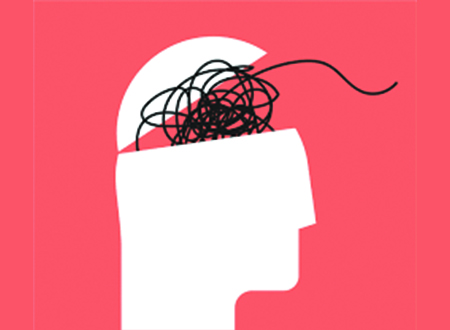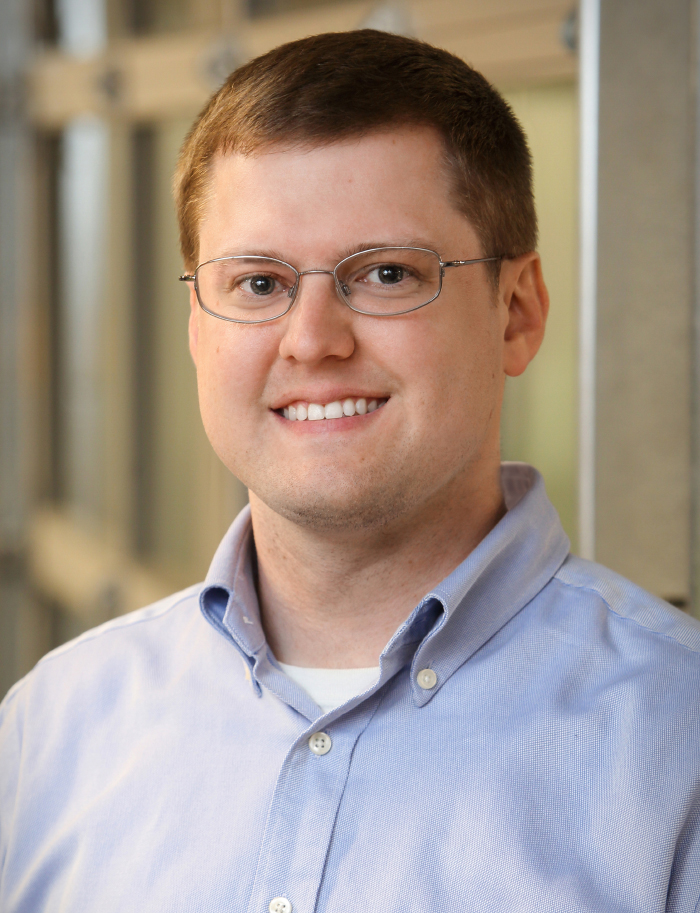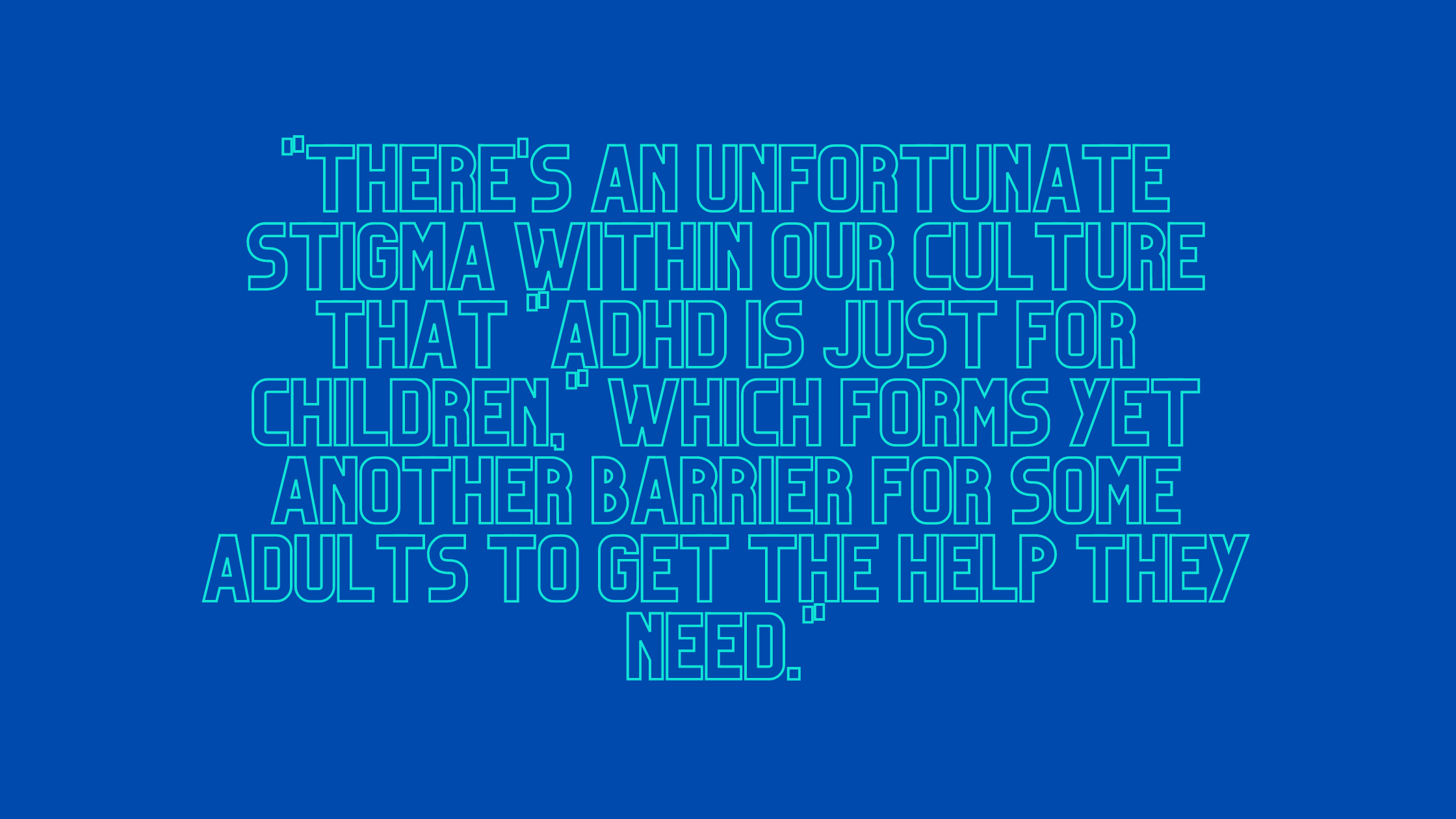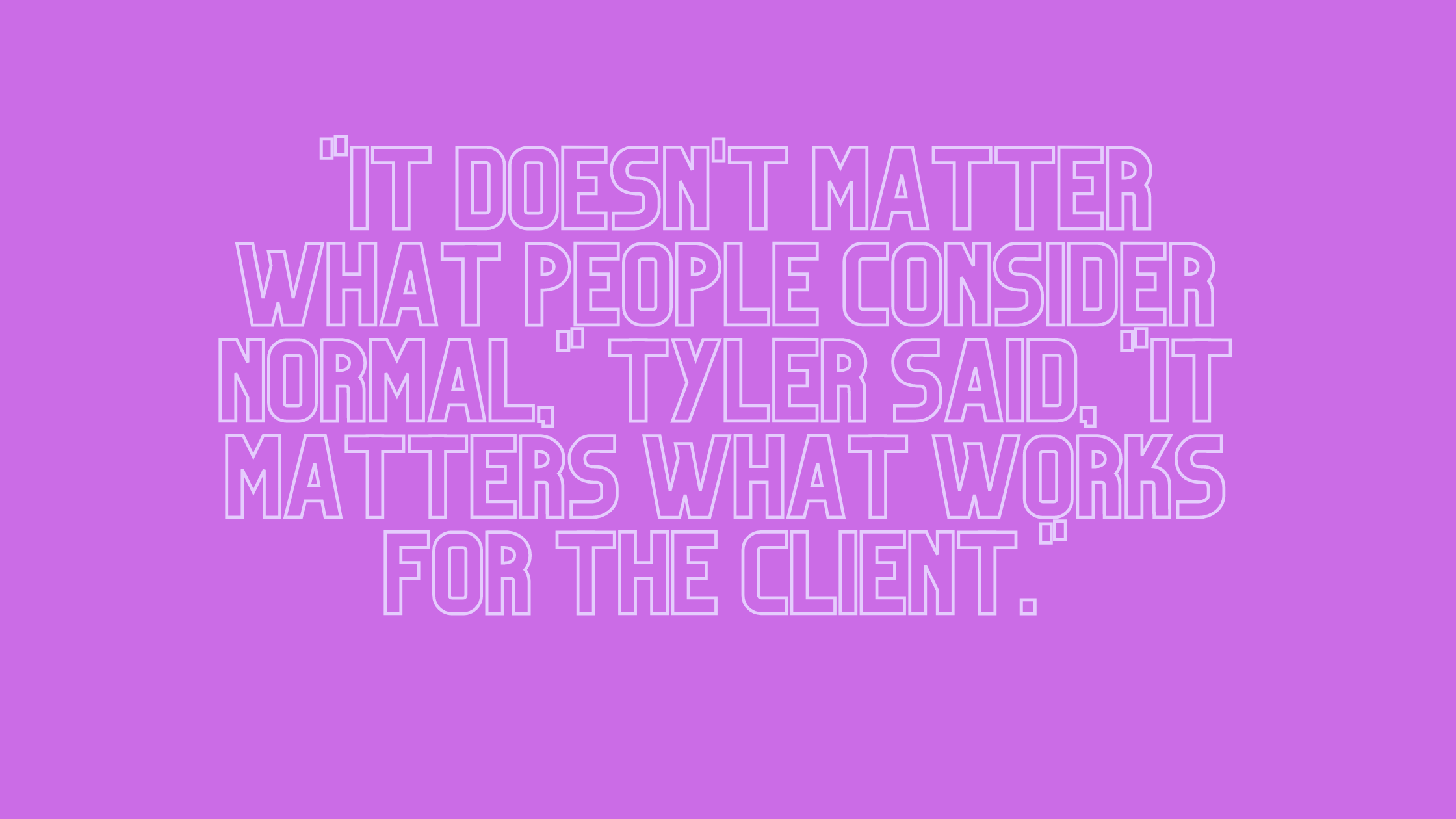Therapy Outside the Box
February 22, 2022

A Passion for Innovative ADHD Treatment
ADHD (or Attention-deficit/hyperactivity disorder) is a neurodevelopmental disorder that’s infamous for being misdiagnosed, misconstrued in media, or missed as a diagnosis for children and adults alike. With ADHD’s classic symptoms of inattentiveness, forgetfulness, concentration difficulties, fidgeting, and more, it can be a difficult diagnosis for many to cope with in their daily life. Living with ADHD can also negatively impact one’s mental health by increasing depression or anxiety. Thankfully, therapy can be a helpful and holistic tool for those living with ADHD by providing skills and techniques that can help them feel more prepared to handle their symptoms with confidence.

Tyler Robertson, LPC from Foundations Health and Wholeness
Tyler Robertson, a licensed professional counselor at Foundations Health & Wholeness, recently received a special certification for treating his clients with ADHD (a diagnosis about which Tyler feels extremely passionate). Tyler explained, “The certification and related tests provided me with a ton of great information about how ADHD functions in the brain, the latest research about ADHD, and new techniques that can be used in my treatment plans for children, teens, and adults.” When asked about therapy techniques and psychoeducation methods he likes to use for an ADHD diagnosis, Tyler expressed that “thinking outside the box can be useful.”
Folks with ADHD have brains that function in a unique way, including things like their memory function, attention span, and impulsivity control. Cases vary from person to person and can be influenced by multiple aspects, including age or gender. Indeed, Tyler noted that gender expression has been a major part of the conversation over the last few decades. For example, the expression of ADHD in young girls is often a quiet inattentiveness, which tends to go unnoticed. In turn, many girls go undiagnosed and untreated, which can cause problems as they develop into adults. On the other hand, young boys tend to have more outward ADHD expressions, such as behavioral problems and hyperactivity. Because of that more noticeable expression, young boys tend to get diagnosed and treated earlier. However, Tyler feels optimistic that current research depicts the diagnosis ratio between boys and girls becoming more equal.
Youth aren’t the only ones living with ADHD. Adults can also struggle with ADHD and managing its many symptoms. Impulsivity, anger issues, forgetfulness, and anxiety about beginning projects can impede the professional and social lives of adults with ADHD. And the diagnosis for adults can be complicated because ADHD can partner up with or cloak itself as other mental health issues: depression, anxiety, anger issues, and learning disabilities, to name a few. To make matters more complicated, there’s an unfortunate stigma within our culture that “ADHD is just for children,” which forms yet another barrier for some adults to get the help they need.
Gatekeeping and “all the extra red tape” that prevent both children and adults from getting the help they need to live fulfilling lives alongside their diagnosis is an aspect of ADHD that gets Tyler fired up. Insurance, the cost of medication and treatment, testing requirements, and the stigma of ADHD are just a few barriers that can cause problems for clients. “Some adults,” Tyler explained, “are treated like they are “med seeking” when they try to talk to a doctor. That can be an invalidating experience.” Others are provided medication and told the prescription should solve the whole problem, instead of clients getting the holistic treatment and coping skills they might require to be successful. “It’s a really big problem,” noted Tyler. This can often lead people to doing their own research and self-diagnosing rather than approaching a therapist or doctor.
What can clients do? “Lots of physical self-care,” explained Tyler. “Things like drinking water, eating well, getting enough sleep, and watching your caffeine intake are all ways to support living well with ADHD.” Tyler also feels passionate about helping his clients look at “self-imposed rules” when it comes to finding coping skills. He has clients with three trashcans in one room and another with a wall full of colored post-it notes, both effective ways these individuals help organize their life. “It doesn’t matter what people consider normal,” Tyler said, “It matters what works for the client.” When it comes to children, Tyler stressed the added importance of getting parents/guardians taking active part in their child’s ADHD diagnosis and what they can do to help support their child. Having an arsenal of coping mechanisms is one of the keys to success when it comes to managing one’s life with ADHD.

When asked if he felt ADHD can be perceived as a superpower, Tyler noted this stance as “controversial.” He explained, “Some people with severe ADHD have major difficulties managing their lives, to the extent that it can negatively impact their social and professional lives to extreme lengths.” However, with therapy, some clients can learn to “wield” ADHD to their advantage. It’s not an easy road for many, but it’s possible to do! “I think about it like the X-Men,” Tyler explained, “The X-Men characters are born with unique abilities that they are unsure how to wield properly, and sometimes, that causes big problems. But Professor X created a school to help these unique people learn to use their powers in a way that’s useful and less destructive. Any superpower can be dangerous until you learn to control it.” One of the positives of ADHD, he added, is creativity and their relationship to inhibition and impulses. “These skills” Tyler noted, “can be really useful to some jobs and for people who are creative. It’s all about finding ways to make your fit with ADHD.”
What are some things that folks with ADHD can do to take care of themselves? “Physical care is a big one,” Tyler emphasized, “like eating nutritiously, drinking water, minding your sleep hygiene, and being mindful of caffeine intake.” He suggested the “How to ADHD” YouTube channel as an engaging resource for those who might be interested in learning a little more about their diagnosis or their loved one’s diagnosis.
With the help of licensed therapists like Tyler, people with ADHD can gain useful coping skills that support their ability to perform daily living tasks and feel more empowered to be successful. What works for one person might not work for the next, so it’s important to understand that troubleshooting with techniques comes with the ADHD territory. “Honestly, it’s about finding coping skills that work for you,” Tyler said, “even if they may seem outside the box.”
Until Next Time,
Maggie Finch
Grants and Content Manager
